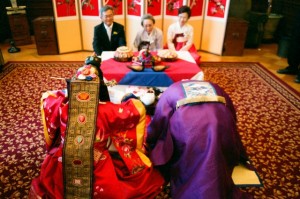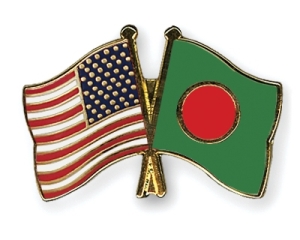The final blog post about The Namesake is here! I will be wrapping up all my ideas in this post and sharing my opinion about the ending of the novel. This last section of the novel is where we see Gogol realize his true identity. Readers can have a feeling of sympathy toward Gogol and on the contrary, a feeling of hatred and disapproval for Moushumi.
Gogol meets Moushumi for the first time and almost instantly feels a connection towards her. The author states, “…it is her very familiarity that makes him curious about her…” (Lahiri, 199). This tells readers that he finds Moushumi’s distant connection and her familiarity with his background very comforting and appealing. Moushumi knows Gogol’s past as well has been to his house and has eaten his mother’s food. They are also very similar in many ways. They both have the same Bengali background and they both have once hated their name. I can connect to this feeling as well because I find that I am attracted to people who are similar to me and have the same interests as me. I think this is the case for many people as well. I was also quite surprised that Moushimi and Gogol decide to have a traditional Bengali wedding. I feel like both of them want to get away from their roots and their culture so this is quite shocking. However, I believe they had this traditional wedding in order to please both of their parents. For me, I think I would have an American style wedding. Korean weddings are most often the same process as the weddings in North America where we wear a white wedding dress. However, we have a small traditional ceremony portion included in the wedding where we would dress up in traditional clothing and bow to our parents.
Although their marriage is going smoothly in the beginning, there are some points in the novel where the author foreshadows the split-up and conflict between them. The first hint of foreshadowing is seen when the couple go to Paris. They both have very different experiences in the city. Moushumi enjoys her time there due to the fact that she once lived there and is very familiar with the place. She refuses to take pictures in a café because she does not want to look like a tourist. Gogol goes sightseeing throughout the trip and is quite new to the environment in Paris.  This event reveals how different the two actually are. Another part in the novel where it foreshadows the couple’s breakup is when they visit Donald and Astrid. Readers can see Moushumi trying so hard to fit in with the Western culture through Donald and Astrid. She even blurts out the fact the Gogol changed his name without any thought or guilt. Gogol detests this environment and wants to escape. These differences between Gogol and Moushumi can slowly be seen throughout the end of the novel.
This event reveals how different the two actually are. Another part in the novel where it foreshadows the couple’s breakup is when they visit Donald and Astrid. Readers can see Moushumi trying so hard to fit in with the Western culture through Donald and Astrid. She even blurts out the fact the Gogol changed his name without any thought or guilt. Gogol detests this environment and wants to escape. These differences between Gogol and Moushumi can slowly be seen throughout the end of the novel.
When the couple eventually split up after Moushumi’s affair, it really disappointed me and made me feel very sympathetic for Gogol. However, at the same time, readers cannot blame Moushumi, as she was acting on impulse and their marriage was something that was just not destined to happen. The author states, “…seems like a permanent part of him that no longer has any relevance or currency” (Lahiri, 284). This reveals that Moushumi no longer has any relevance in his life and does not define who he is now, but it is something that existed and is a part of his past. Gogol finally realizes that he is not one culture or the other. He is a mixture of both and cannot live without the other culture being part of his life. This novel really had me thinking about my own life and allowed me to look back at my own culture. I really connected with the characters, especially Gogol, and I felt their emotions throughout the whole novel. I definitely recommend this novel to anyone out there. Thank you for following my weekly posts and I hope you learned a little bit more about me and about my insights about the novel.
This novel really had me thinking about my own life and allowed me to look back at my own culture. I really connected with the characters, especially Gogol, and I felt their emotions throughout the whole novel. I definitely recommend this novel to anyone out there. Thank you for following my weekly posts and I hope you learned a little bit more about me and about my insights about the novel.
Picture References:
http://bdinn.com/articles/u-s-feared-india-would-intervene-in-bangladesh-after-coup/

I enjoyed reading your post, and am sad that it is the last one! I agree with you that Gogol finds Moushumi’s familiarity comforting and appealing, and they are indeed similar. I also can relate to being drawn to people who share things in common with me. It was also interesting reading about what Korean weddings entail. I didn’t realize how different Indian weddings are from other cultures, until I read this. In my culture, marriage ceremonies last for a few days, and sometimes an entire week. I also noticed the elements of foreshadowing that you pointed out. However, I did not actually recognize these subtle clues until Moushumi became involved in an affair. Finally, it is nice to see Gogol’s recognition of the fact that both cultures will always be a part of him.
It is so interesting how weddings can differ from each culture! I am also quite sad that this is the last post about this novel. I am glad you followed my posts regularly and enjoyed reading them.
I really liked your post here. The connection to the different culture’s wedding is really interesting to me. I have two sisters who are married and I have witnessed 3 different types of weddings from each of them, considering the fact that one of them married to a different cultural background. It is quite interesting to see or read about the different cultural weddings and how it’s organized. In the book, I was also surprised to see that they followed through with a Bengali wedding, since both Gogol and Moushumi have similar interest to the american cultural. As the finale of the book, it was great to see how Gogol realizes and recognizes the mixture of cultural backgrounds are a part of him.
Korean wedding ceremony photo above by Doug of Helios Images 😉